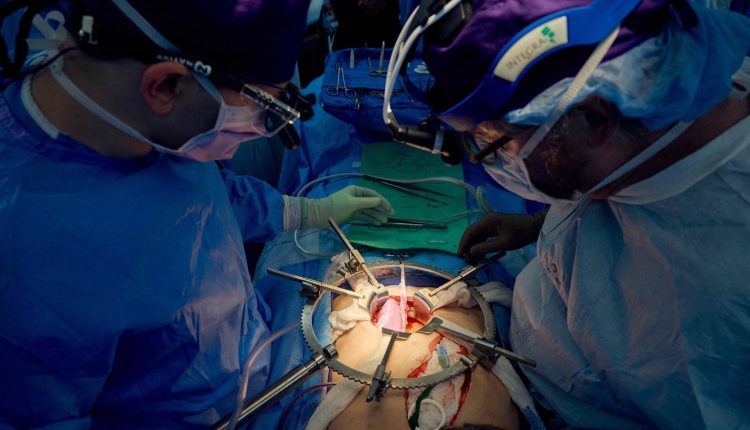Doctors transplanted a pig’s kidney into a brain-dead man’s body where it continued to function normally, moving the field closer to the possibility of using animal tissue and organs to fight human disease.
The man in his 50s had acute kidney injury and a history of end-stage disease, but his organs produced urine soon after the transplant, according researchers at NYU Langone Health in New York. The transplant was done more than a month ago, and the kidney continues to function, they said Wednesday in a call with reporters.
The successful transplant is the latest breakthrough for scientists racing to find alternatives to human organs that are in constant shortage. Nearly 40 million people in the US have chronic kidney disease, and 17 people die each day in the US waiting for an organ transplant, according to the National Kidney Foundation.
The experimental procedure, called a xenotransplant, marks “another major step forward in potentially utilizing an alternative supply of organs for people facing life-threatening disease,” according to a statement from the medical center. The pig’s organ underwent genetic modification to make it more acceptable to the host body.
Researchers have looked at a variety of ways to use animal organs and tissues in humans, including reviving those obtained from deceased animals. The key sticking point has been maintaining their health in the human body, where they’re under consistent attack from an immune system that targets “non-self” cells, proteins and tissues, a process called rejection.
In the experiment with the modified pig organ, “there’s no evidence of rejection in normal renal function and clearance of toxins,” Robert Montgomery, who led the NYU team, said on the call. “The pig kidney appears to replace all the important tasks that the human kidney manages.”
If the organ continues functioning for two months, it will have surpassed the time when most comparable xenotransplants in monkeys have failed, said Montgomery, who is chairman of Langone’s surgery department and director of its Transplant Institute.
“It’s extremely complicated but at the end of the day we have to think about all the people who are dying because we don’t have enough organs,” Montgomery said. “We’re getting close to having that preponderance of evidence” to move into experiments with living humans, he said.


